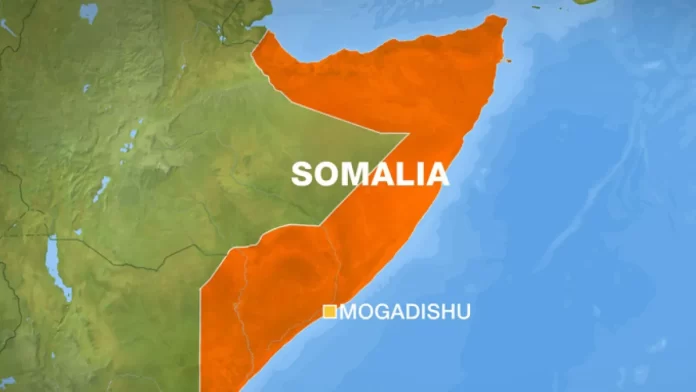The Quest for Legitimacy: A Reflection on Somaliland’s Struggle for Self-Determination.
Introduction
The narrative of Somaliland’s quest for self-determination is a tapestry woven with threads of aspiration, ambition, and, at times, disillusionment. Following the collapse of the revolutionary government of Siyad Barre in 1991, the leadership of the Somali National Movement (SNM) embarked on a path that diverged from the very aspirations of the people they claimed to represent. The declaration of independence, dictated at gunpoint, marked a significant departure from the foundational ideals that had once united the Somali people in their struggle against injustice. This essay seeks to explore the complexities of Somaliland’s journey, the ramifications of its leadership’s choices, and the urgent need for a return to dialogue and legality in pursuit of a sustainable future.
The Historical Context
To understand the contemporary situation in Somaliland, it is essential to revisit the historical context of the Somali people’s struggle for unity and justice. The roots of this struggle can be traced back to the colonial era when the Somali territories were divided among British, French and Italian administrations while Britain ceded parts to Ethiopia. In 1960, the territories united to form the Somali Republic, a union that was celebrated as a triumph of Somali nationalism. However, this union was fraught with challenges, and the subsequent years saw increasing discontent, culminating in the rise of Siyad Barre’s authoritarian regime.
Barre’s miitary government, characterized by oppression and human rights abuses, sparked a resistance movements in the South and in the North that eventually gave birth to the SSDF, SNM and others. The SNM emerged as a beacon of hope for many in the North, advocating for justice and the rights of the Somali people. However, the collapse of Barre’s regime in 1991 opened a Pandora’s box of complexities. Instead of fostering unity, the SNM’s leadership opted for a unilateral declaration of independence, a decision that would have profound implications for the future of Somaliland and its people.
**The Unlawful Secession**
The SNM’s declaration of independence was not merely a political maneuver; it was a forced assertion of authority that disregarded the will of the people. The leadership, composed of ambitious and often uninformed officers, pursued a path that prioritized personal gain over collective aspirations. This unlawful secession, dictated at gunpoint, betrayed the very principles that had inspired the SNM’s formation—a commitment to Somali unity and justice.
The decision to pursue secession without the consent of the broader populace not only alienated significant segments of the Somali community but also contradicted the original mandate of the SNM. The organization had been founded on the belief that Somali unity was sacred, and that the struggle against Barre’s regime was aimed at forging a just system for all Somalis. By deviating from this mandate, the SNM leadership effectively undermined the legitimacy of their cause.
The Consequences of Misguided Leadership
The consequences of the SNM’s unilateral actions have been profound and enduring. For over three decades, Somaliland has grappled with the fallout of a leadership that prioritized power over principles. The youth who once fought valiantly for justice and unity found themselves misled by leaders whose ambitions eclipsed the collective will of the people. As a result, the promise of a better future has remained unfulfilled, leaving the populace in a state of poverty and unemployment—a dire situation that has persisted for far too long.
The leadership’s failure to engage in meaningful dialogue and negotiation has perpetuated a cycle of disillusionment. The people of Somaliland, who once harbored hopes of a prosperous and united future, now find themselves trapped in a quagmire of unmet aspirations. The lack of viable solutions and the absence of a clear path forward have created an atmosphere of despair, where the youth, the very backbone of any society, remain disenfranchised and disillusioned, with many indulging in dangerous immigration.
The Need for Dialogue and Legality
In light of the current predicament, it is imperative to recognize that the path to self-determination need not be paved with force or unilateral declarations. International law provides frameworks for addressing issues of sovereignty and self-determination, emphasizing the importance of negotiation and peaceful dialogue. The demand for independence, once collectivelly voiced by six different tribes in their quest for freedom from British colonial rule, ought to be revisited through a lens of legality and mutual consent.
The SNM leadership’s decision to unilaterally declare independence not only violated the principles of democracy but also set a dangerous precedent for future governance. To rectify this situation, it is essential to initiate open discussions and consultations among all stakeholders, including the various tribes and institutions within Somaliland. Acknowledging the complexities of the past and the aspirations of the present is crucial for forging a path toward a sustainable future.
Conclusion
The journey of Somaliland is a poignant reminder of the intricate interplay between leadership, aspiration, and the quest for legitimacy. The SNM’s decision to dictate an unlawful secession at gunpoint not only betrayed the trust of the people but also obscured the original ideals that had inspired the struggle for justice and unity. As Somaliland stands at a crossroads, the imperative for dialogue and legality has never been more urgent.
In the face of adversity, it is essential to return to the foundational principles that once united the Somali people. The pursuit of a just and equitable system requires a collective effort, one that prioritizes the voices of the people and acknowledges the complexities of their shared history. Better late than never; the time for open discussions and consultations is now. The future of Somaliland hinges on the ability to reconcile the past with the aspirations of its people, paving the way for a brighter, more inclusive tomorrow.




